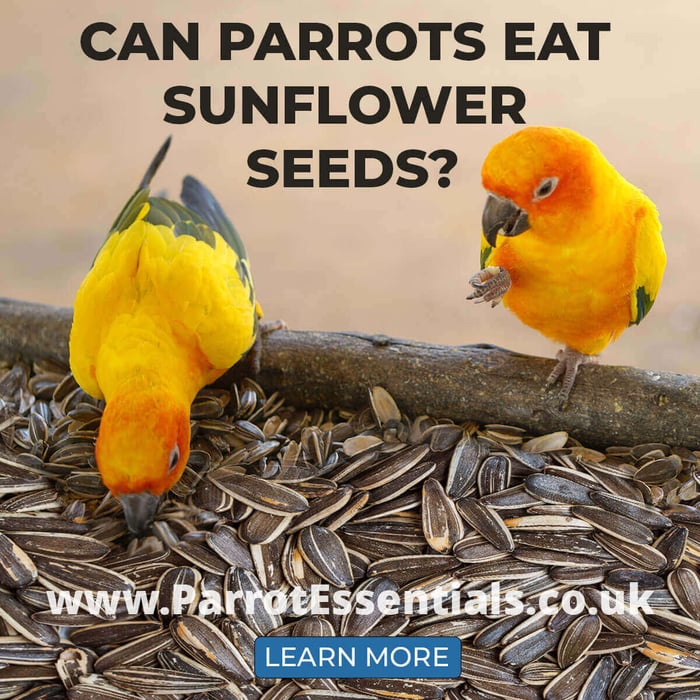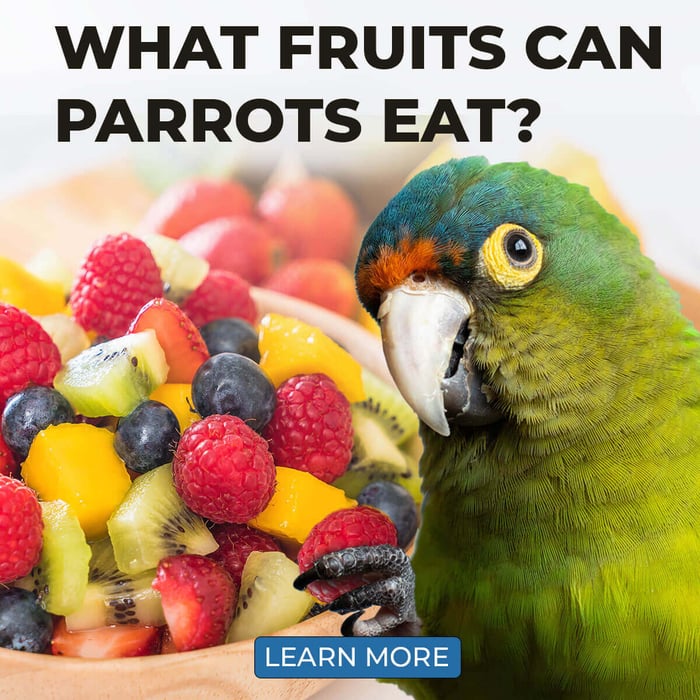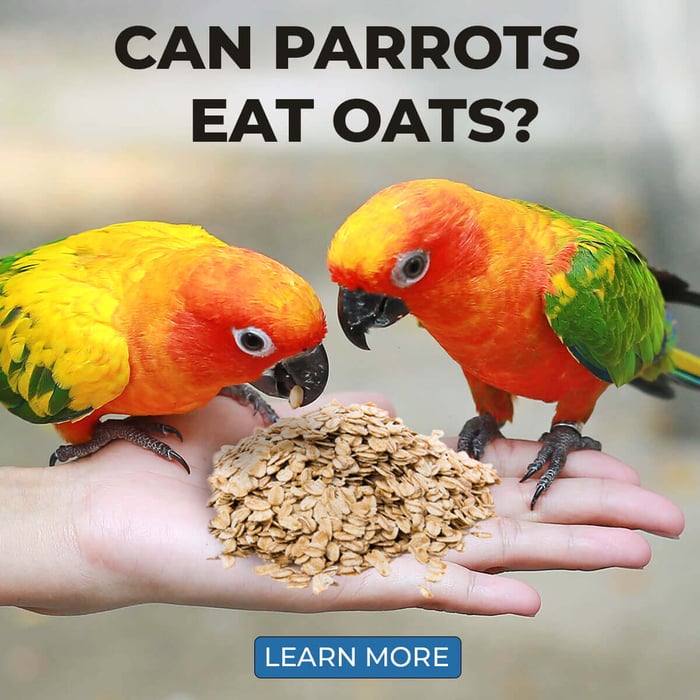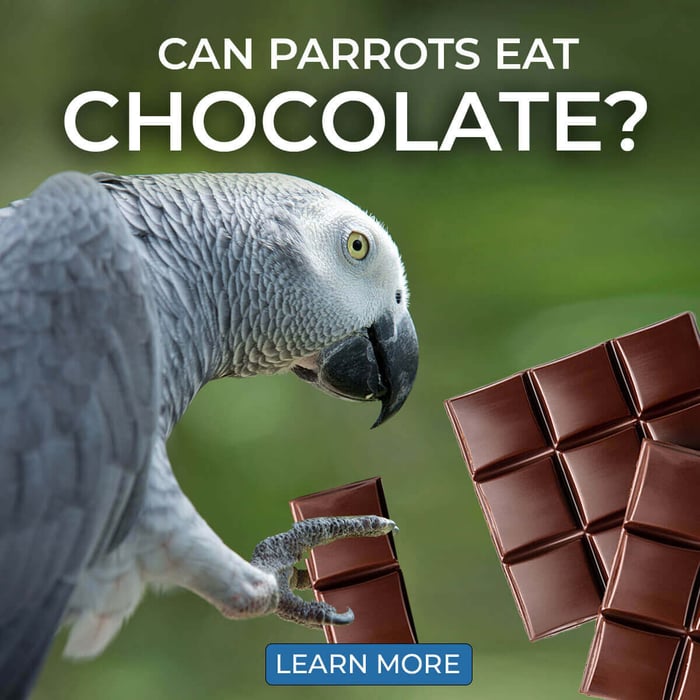Can Parrots Eat Pasta? Is It Safe for Them?
Can Parrots Eat Pasta? Yes, of course. Your pet parrot can have pasta but in very small quantities. If you do decide to give pasta to your pet, it should be only as an occasional treat and never as a part of its main diet.
Pasta contains a sizeable amount of carbs for a delightful burst of energy. Still, it shouldn't be your bird's staple food, as it isn't high in nutrients. If you will feed your parrot with pasta, do it occasionally and only offer it as a treat.
Don't add sauce to any pasta you give your parrot, as sauces are almost always laden with salt and other ingredients that aren't good for your feathered pet. Let's look at how to prepare pasta for a parrot and which types are best!
Is Uncooked Pasta Safe for Parrots to Eat?
Raw uncooked pasta is perfectly safe for your parrot to consume. The nutritional value of cooked and uncooked pasta is equal. Some parrots love the crunchy sensation, so if yours is a fan, you can offer a few pasta shells here and there to provide texture and variety to the diet.
Remember that excessive raw pasta can cause bloating, diarrhoea and discomfort, so don't overdo it. Give raw or cooked pasta only as an occasional treat. Feed your parrot with a healthy, balanced seed mix or complete pellets supplemented with fresh fruit, veg and sprouts.
Can Parrots Eat Pasta with Sauce?
Most pasta sauces are a no-go for your parrot. Both red and white pasta sauces are high in salt, which is fine for us humans to have but can be harmful to your parrot. In addition, they weigh so little that even small amounts of salt can be problematic!
Other likely white sauce pasta ingredients include milk, butter, or cream. Parrots cannot digest this properly, and the high-fat content can quickly put your bird over its daily calorie limit. They may love the taste of pasta sauce, but if you'd like your parrot to enjoy some pasta, it's better to boil it plain.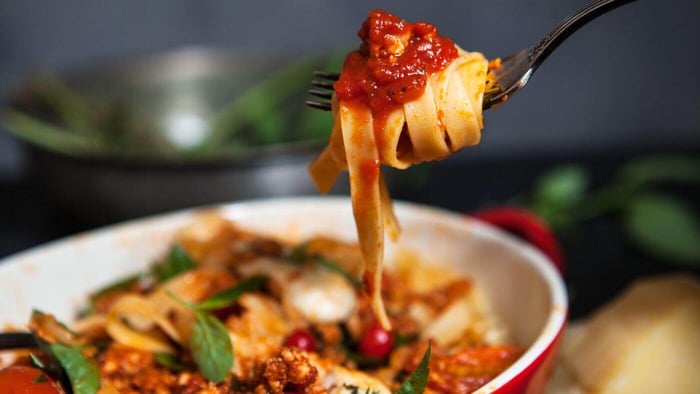
Can You Feed Pasta to a Baby Parrot?
You should not feed pasta to a baby parrot. If you're hand-feeding a bird, which we don't recommend unless the parents explicitly reject it, it should only eat special parrot formula.
Once it's weaned and can eat solid foods, you can offer some cooked pasta to see if it likes it. Feeding various foods while your parrot is still young can help prevent it from becoming overly picky at a later age!
How to Prepare Pasta for Your Parrot
Your feathered pet can eat both the cooked and raw versions of pasta. A bit of boiled pasta can be a good addition to parrot food mixes (known as chop), especially if it's whole wheat.
In order to properly boil some pasta for a bird, just cook a few pieces in plain water without salt until they're soft. You can then feed it as-is or include it in the food mix you're preparing. Scroll down to find a full recipe for a yummy dish for your parrot that's full of pasta, veggies and healthy beans!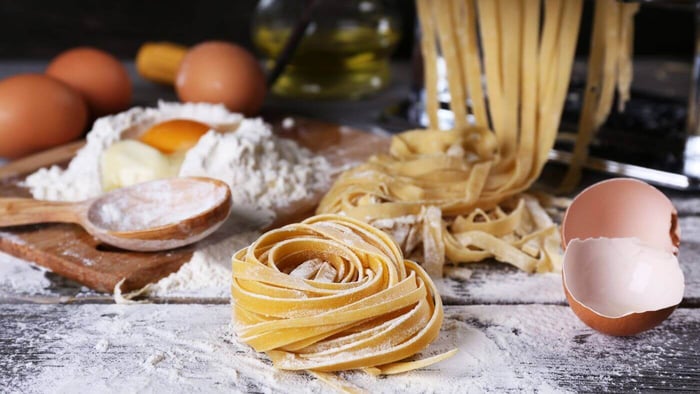
What Pasta Variety Is Best for a Parrot?
As you might have guessed, not all pasta benefits your parrot equally. An example of pasta that will have less nutritional value for your parrot is:
- White pasta: This pasta variety is refined, so the bran, germ, and endosperm are missing.
The second pasta variety is:
- Whole grain pasta: This type is more nutritious. A single (100 grams) serving of boiled whole-meal pasta contains 190 calories and slightly more than 30 grams of carbohydrates. It also has about 0.75 proteins and 0.65 fibre.
Tiny but beneficial amounts of thiamin (vitamin B1) and niacin (Vitamin B6) are present. The meal also contains magnesium, selenium, copper, and iron traces.
Recently, many manufacturers have also started producing gluten-free pasta, which may be made from lentils or corn. These are fine to feed to your bird.
What Main Pasta Ingredients Improve a Parrot's Digestive System?
A parrot's digestive system is key to its overall health. Due to two main ingredients, pasta can be good for the bird's gut. For instance, whole-wheat pasta contains dietary fibre. This substance is vital because it keeps the digestive system working properly. Do remember that white pasta has almost no fibre!
Pasta is a high carbohydrate source. While this is obvious, magnesium is a beneficial ingredient. The mineral ensures smooth digestion and prevents health issues like constipation and diarrhoea.
What are the Other Nutritional Benefits of Pasta for a Parrot?
Besides magnesium and carbohydrates, pasta contains additional trace minerals that can benefit your parrot. Here is a list of them: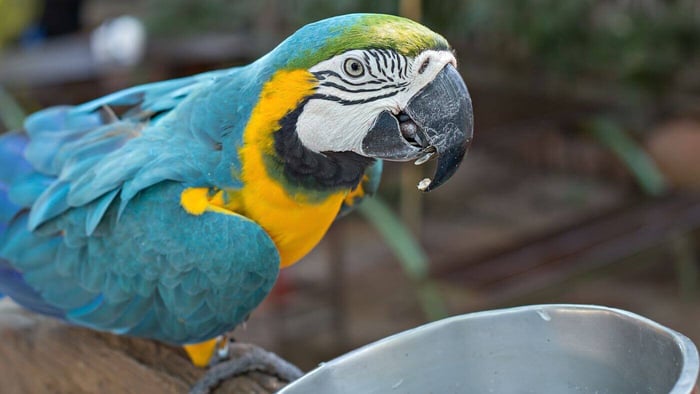
- Calcium: This dietary mineral makes up 97% of your parrot's eggs. However, there are more reasons to feed calcium, including a robust skeletal structure and muscle function. Calcium is also critical in fat metabolism and preventing blood clotting issues. Lastly, it produces hormones and nerve impulses for a productive bird.
- Copper: For your bird's bone, feather, and immune system health, copper must be present in its body. Pasta contains this vital mineral. Without copper, your bird is at risk of cardiovascular and osteoporosis issues. In addition, copper works with iron to build haemoglobin reserves for the parrot's red blood cells.
- Iron: Pasta also consists of iron traces that help build the haemoglobin to help deliver oxygen to your parrot's bloodstream. Other reasons your bird benefits from pasta iron reserves include reducing fatigue and promoting strength, vigour, and alertness. Iron also improves the bird's digestive function.
- Selenium: A trace mineral that your bird's immune system cannot function without is selenium. The good news is that this element is right within the pasta serving. It shields the cells from damaging free radicals. It's also vital for the parrot's cognitive function and cardiovascular system.
- Manganese: Most people confuse manganese for magnesium. However, they are not the same and provide different functions for the body. This trace element appears in small quantities to build your bird's bones and sex hormones. The nutrient also plays a significant role in connective tissue and blood clotting. Only a tiny amount of manganese is required for your bird's body to function optimally.
What Other Healthy Food Can a Parrot Eat?
While pasta is safe for your parrot to eat, it cannot be its primary meal, as it lacks sufficient nutrients for a balanced diet. For example, the vitamins and protein content are negligible, especially in refined white pasta. Luckily, there are plenty of other things you can feed your bird!
Look at the article on What Food Do Parrots Eat? to find out what you can include foods in a healthy parrot diet. A balanced, varied diet will provide all the essential elements for your pet. This will keep them in great condition and their feathers bright and shiny.
How to Prepare Bird Pasta with Veggies and Beans
This quick and simple dish offers various colours, flavours, and textures of bird food to motivate your parrot to consume a balanced diet.
Additionally, it is extremely adaptable, as you may alter the proportions of beans, veggies, and pasta to suit the preferences of each individual bird. For example, the dish recipe below consists of equal servings of beans and veggies, and a third of the dish consists of pasta. You can mix this up by changing the quantities or adding additional ingredients that you know your parrot will appreciate.
It is important to remember that two or three cans of beans will produce a very large quantity, but including them in the recipe is advised to offer more flavour variation. A single can containing only one variety of beans is also an excellent option.
Ingredients
- 1 to 3 cans of different beans like pinto beans, red kidney, black-eyed peas, pinto beans, or garbanzo
- One bag of frozen vegetable mix. These may include carrots, corn, bell peppers, peas, lima beans, and green beans
- Wheat or vegetable Pasta. Pick any of your choosing.
Directions
- Put a large pot of water on the stove (sufficiently sized to contain all the ingredients) and bring it to a boil.
- Add the dry pasta. Usually, it should be boiled anywhere between 9 and 13 minutes, depending on your preferences.
- Pour the frozen vegetable mix into a strainer and run some hot water over it for a few seconds before adding it to the boiling pasta. That will help minimize the total amount of time spent cooking the pasta to a minimum. It normally takes six to eight minutes for the frozen vegetables to become completely soft.
- Cut the beans in half lengthwise, then pour them into a sieve and give them a thorough washing. Put them in the pot with the pasta and vegetables as they cook. As canned beans have already been fully cooked, they only need to be heated through.
- If everything is added in this order, it should all be finished by the time the pasta has finished cooking entirely. After cooking the mixture, strain it, then set it aside to cool before serving! Put any leftovers in the freezer so your bird may enjoy a simple snack at a later time that requires no more than a minute or two to reheat.
Optional: Once the dish has cooled, transfer it to a container you can seal. After adding one to two teaspoons of tomato marinara, ensure the lid is securely fastened. Shake the container to ensure that the marinara has a thin and equal covering all over the mixture.
Can Parrots Feed on Instant Noodles?
Parrots can consume spicy noodles as occasional treats. Spicy foods are a favourite of parrots, as they don't have receptors for the capsaicin that hot peppers contain. They will enjoy munching on your noodles if you make them spicy.
The problem is that instant noodles are laden with salt and other artificial flavourings, so you shouldn't feed more than one or two noodles at a time.
Conclusion
The answer to the question "Can parrots eat pasta?" is yes. So feel free to feed your parrot with pasta, but only as a treat, occasionally and in small quantities. Never use pasta as part of their daily diet. Last but not least, don't use salt when cooking pasta for your bird.

